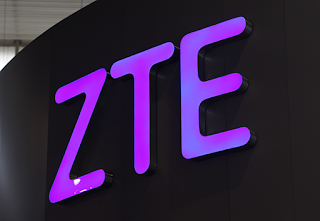ZTE and NetCologne, a regional network operator in the great Cologne-Bonn area of Germany and a subsidiary of utility company GEW Köln, which in March announced with ZTE the launch of the pilot phase of a G.fast roll-out, have jointly announced the G.fast@212 MHz profile ultra-broadband solution at the ANGACOM broadband exhibition in Cologne.
In what the companies claim is the first demonstration of G.fast@212 MHz, the technology is being tested over a live network. As part of the demonstration ZTE and NetCologne showcased the access rate profile of G.fast@212 MHz reaching more than 1.8 Gbit/s, with a download rate 1.6 Gbit/s and upload rate of around 200 Mbit/s. ZTE's G.fast solution is designed to enable NetCologne's fibre-to-the-building (FttB) access network to support gigabit bandwidth.
NetCologne stated that it is committed to providing the city of Cologne and surrounding regions with reliable, advanced telecom services, and has cited a target of reaching 260,000 homes. The company operates four data centres and offers a service portfolio that includes voice and data services and distribution of TV services for both residential and business users, as well as business ICT solutions.
- NetCologne and ZTE signed the agreement defining their strategic partnership in February of this year. Under the terms of the agreement, ZTE will provide NetCologne with advanced network equipment including G.fast distribution point units (DPUs) and terminals.
- ZTE's multi-port G.fast DPU supports G.fast@212 MHz and flexible uplink selection among PON/point-to-point/DSL (PON/P2P/DSL) technologies. The solution also features multiple power supply options, allowing it to self-adapt for a range of deployment scenarios.
- Through the agreement, ZTE will help NetCologne to upgrade its existing VDSL network to a G.fast network. This solution will enable NetCologne to cost-effectively provide access at rates approaching 2 Gbit/s while utilising the existing copper infrastructure, without the need for fibre reconstruction in the residential network.









